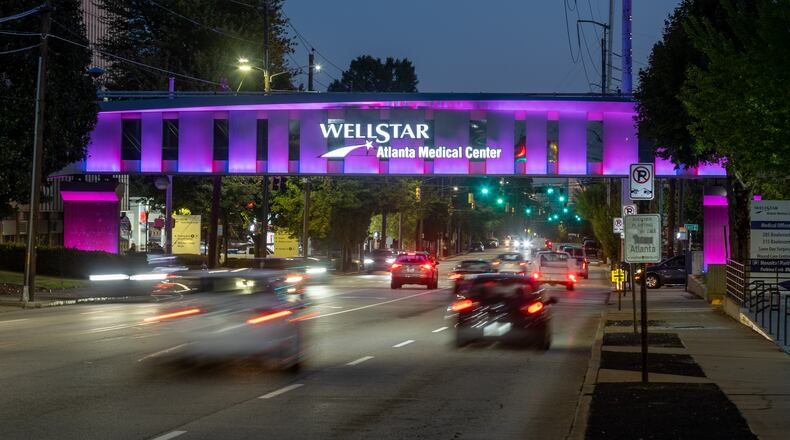The Atlanta City Council passed legislation Monday to codify an executive order from Mayor Andre Dickens prohibiting the city from accepting redevelopment applications for the site of the closing Atlanta Medical Center.
Dickens issued an executive order last month directing the City Planning department to refuse any applications for rezoning, building permits, land disturbances, special administrative permits, subdivisions, replatting or lot consolidations the land within the AMC’s footprint. Dickens renewed the temporary moratorium on Oct. 4.
The 10 council members present at Monday’s meeting unanimously voted to extend the mayor’s executive order. This means the AMC site moratorium will last for 180 days instead of two weeks, though the ban would also expire under the ordinance if the council votes on a zoning plan for the site within the aforementioned timeframe. It will go into effect once Dickens signs it.
City Council members Liliana Bakhtiari and Amir Farokhi, who both represent districts where the AMC is located, successfully had the ordinance sent to the mayor post haste for approval.
Wellstar Health System officials on Aug. 31 announced plans to close the AMC by Nov. 1, and Wellstar closed AMC’s emergency room on Friday. The announcement is concerning for residents and public leaders because the AMC, a 120-year-old institution in the Old Fourth Ward, serves low-income families as one of the region’s two Level I trauma centers.
Nearly two city blocks are owned by Wellstar for the AMC property. Its zoning regulations include the C-1 Community Business District, C-2 Commercial Service District, and the C-4 Central Area Commercial Residential District. Some of the properties also fall within the Beltline Overlay District and Beltline Affordable Workforce Housing District.
City leaders say the moratorium gives the city time to work with the community and health care providers to address the impact of the AMC’s abrupt closure. Dickens says Atlanta wants to prioritize the continued use of the 25-acre site — in whole or in part — for health care services. AMC also houses the Atlanta Police Department’s Zone 6 Crime Suppression Precinct, so Dickens wants to maintain that public safety infrastructure as well.
Credit: John Spink / John.Spink@ajc.com
Credit: John Spink / John.Spink@ajc.com
Farokhi has said the city shouldn’t allow the site to become a “black hole” void of development, akin to what occurred when the city closed the civic center years ago.
“I’m not the final decision maker but given how much property is at issue here, and the needs of the neighborhood in the city, I could foresee a redevelopment here that includes housing, offices, and retail, alongside health care access,” Farokhi said.
Meanwhile, City Councilman Michael Julian Bond wants to study the possibility of turning the AMC site into an equity center. Bond’s resolution would create a “Wellstar Hospital study group” limiting the group’s recommendations to building an equity center. His resolution was tabled for two weeks.
About the Author
The Latest
Featured


